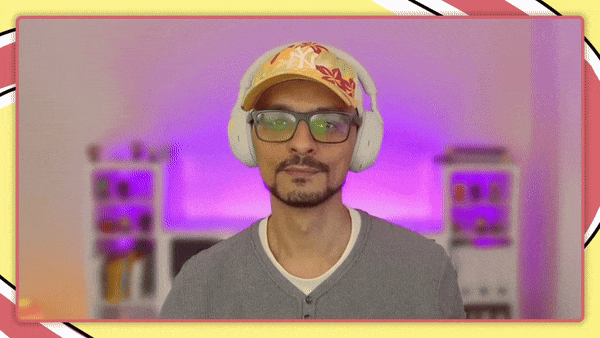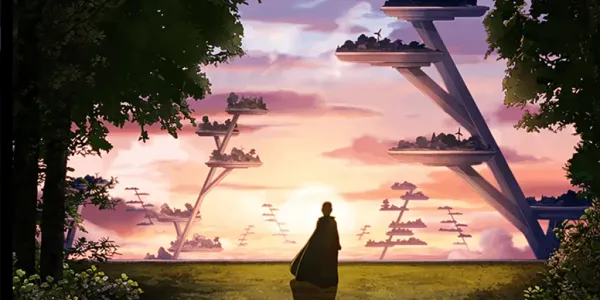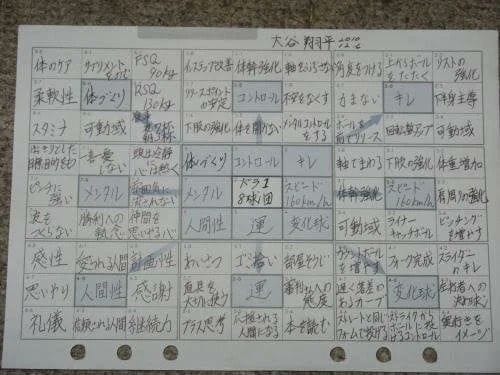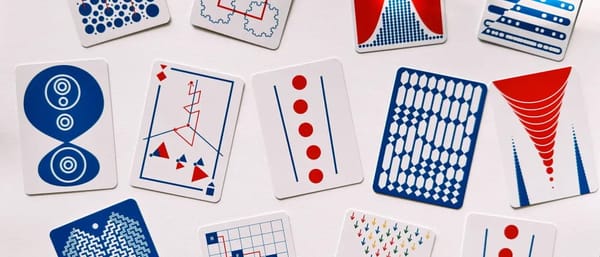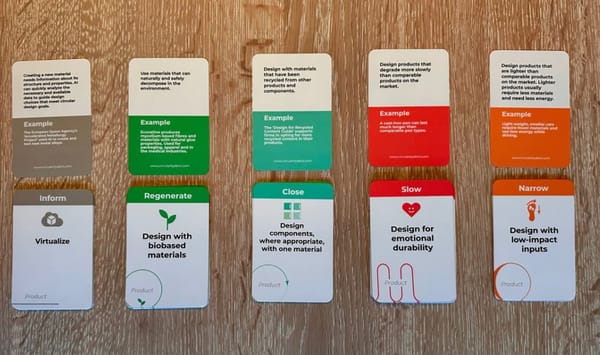№ 81 | Scientific Papers as Comic Strips, 52 Things About Cards, Thermodynamics Cards, Collaborative Place Futures Toolkit, and Why The Work is Never Just “The Work”
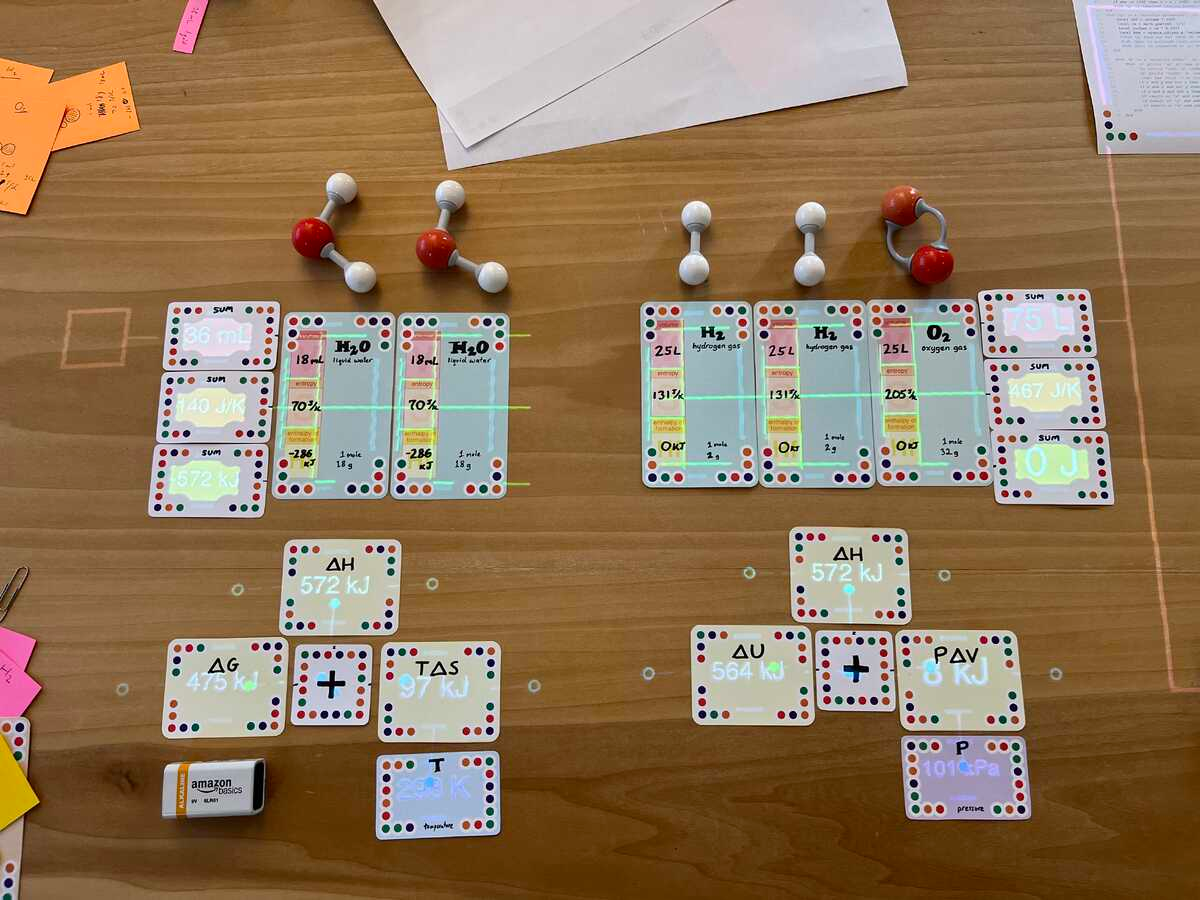
1/ The promised print-and-play Zombie Leadership cards.
2/ An announcement about our next Creative Challenge…
Scientific Papers as Comic Strips
Yes! Comics as things to think with. Here’s an interview with Kanaka Rajan, who uses “narrative illustrations to explain the findings in some of her papers… [making]computational neuroscience accessible to students who have little scientific training.”
Now associate professor of neurobiology at Harvard Medical School, Rajan tries to make her own scientific papers more comprehensible—through comic strips.

When asked about some of the other benefits of this approach, Kanaka responds:
Well, the person who is funding the research is the taxpayer, and they don’t know what the paper is about as it’s written. Given that public trust in science is at an all-time low, I find this important.
I share this specific quote, as it gets at some of the mission behind this whole Thinking Things / Mighty Minds endeavor: the ability to think critically about complex topics, this is something very much needed, by all. Any ‘thing’ that makes knowledge more accessible—not by dumbing stuff down, but through extending our limited cognitive abilities—these are things we need to celebrate, share, and use.
We’re not stupidifying the work. I’m making it visually engaging without jargon. We’re saying, “Come play with us; the sandbox is open.”
🥰
Speaking of things that extend our cognitive abilities…
[Talk] “52 Things About Cards”
At last month’s Cardstock meetup, John V Willshire graciously repeated his Papercamp talk “52 Things About Cards,” and… it’s goooood. 🤩
Lots of thought provoking stuff, about cards and their history, but also the nature of physical cards as a medium, and how we can use these things to extend our thinking. Plus, nice little quips like“horizontal for play; vertical for display.”
During John's talk, I had a bit of an ✨ epiphany✨. An awareness of a bias, really. I’ve always thought of cards as things pre-printed with content, with similarities to sticky notes (each an atomic unit of information, remixable, etc.). I’ll talk for hours about the kinds of things we can do with cards, but… I’ve always carried this notion of cards as pre-printed, prepared things. What John talks about is using blank cards like we do sticky notes, but argues how this affords a different set of interactions you don’t get with sticky notes, e.g. you can shuffle or randomly draw from a pile of cards, something that sticky notes aren’t really designed for. This led to a bit of noodling and me drawing this “spectrum’ of sorts:
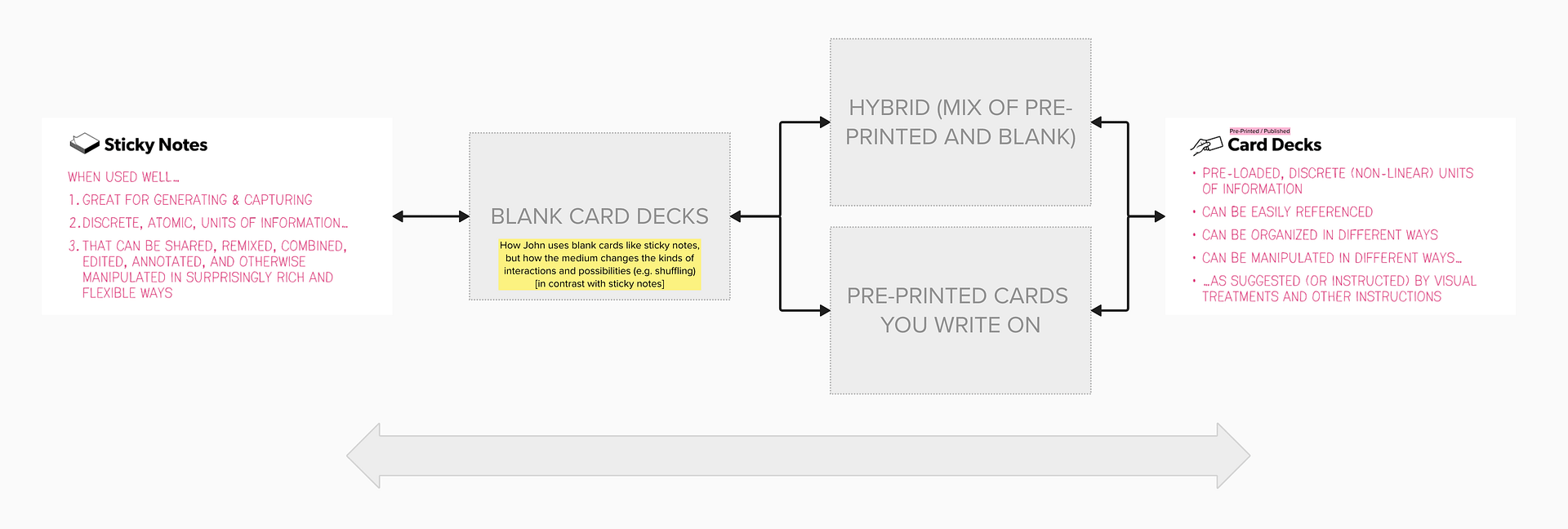
Anyway, go check out his talk!
Speaking of cards…
Thermodynamics cards
Digging through the Dynamicland archive. I stumbled across this prototype for Thermodynamics cards. It’s a card game of sorts, for learning thermodynamics.

While the demo is inspiring (as always), what I love is how Bret Victor is discovering (or commenting on) the cognitive value of physical cards as a medium.
After noting his struggle to remember a common diagram from thermodynamics, he cites his inspiration for this game:
We picked up this card game… Took it home. Played a hand of the game, and went to bed… I found the next day… I remembered everything about this game. I could remember the entire deck of cards. What every card did. The entire layout. I could basically play out entire hands of the game in my head. But I still can’t remember that square of F, G, and H. So obviously what we need to do is represent thermodynamics as a card game.
Obviously! 😉
After commenting on watching a video tutorial vs actually playing the game, he adds this:
Maybe that’s the point—you actually need to play these things out with your hands [to follow what’s going on].
While his use of cards here—as a dynamic medium—goes beyond any normal printed deck, what is timeless are the reasons for choosing this format in the first place:
This is a nice setup for me to remember these relations. In a way that diagram never worked, I can go for a walk and I remember this setup.
One reason this works is it’s spatial; I can remember where things are laid out. [But] I think the main thing is it’s operational. Every concept is represented by a physical object, that I kind of played in the game, I dealt out…
The best part is near the end:
It’s just fun to be able to play with these parameters.
Playful things to think with, FTW!
Card nerds: Notice the intentional use of different sized—and shaped—playing cards.
Collaborative Place Futures: A Toolkit for Transition
Ready to develop your ‘futures literacy’ skills? The Collaborative Place Futures Toolkit is a deck of 30 cards, each with an exercise to help us collectively imagine better places in the future.
We’ve drawn together tools from filmmaking, trends forecasting, service design, community engagement and meditation to enable you to bring futures and foresight practices, greater empathy and creativity into the way you think about places.

The work is never just “the work”
Yes! An article that crisply explains why the work is never just “the work.”
A deep dive on why projects always take longer and a framework to improve future estimation
I love it when someone is able to capture, articulate, and draw something we all know and sense.

Random Fun Stuff:
1/ Dookie Demastered presents 15 classic Green Day tracks demastered (ahem!) into “obscure, obsolete, and inconvenient [audio] formats.” While most of it will make you, uhm… appreciate modern audio fidelity, I do enjoy the Game Boy Cartridge version of “Welcome to Paradise.”
2/ I kind of love all the crazy things that “facilitainer” Said Saddouk tries with OBS… This time, it’s a small dice app for your remote workshops!
